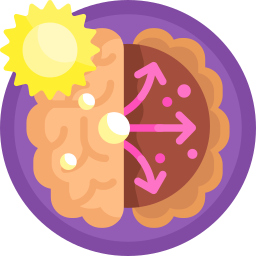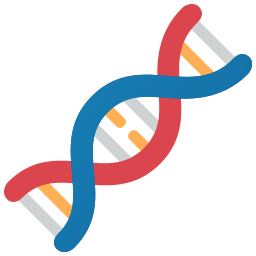GLOSSARY
E
Ei viitsi
Pronounced “ey – vitsi,” an Estonian term describing the slight laziness or unmotivated feeling to be bothered to do anything.


Elation
A psychological state of exhilaration upon receiving a positive unexpected experience on the self.


Electroencephalography (EEG)
An electrophysiological technique for the recording of electrical activity arising from the human brain.


Electromyography (EMG)
An experimental technique concerned with the development, recording and analysis of myoelectric signals or the electrical activity of muscle tissue. Myoelectric signals are formed by physiological variations in the state of muscle fiber membranes.


Elevation
A positive emotion one experiences when witnessing a virtuous act that improves the welfare of others. Moral elevation consists of a feeling of warmth and expansion that is accompanied by admiration and affection for the person(s) who performed the exemplary behavior.


Embarrassment
(An emotion experienced when) individuals fail to behave in accordance with socially defined scripts and roles and is defined as "the flustering caused by the perception that a flubbed (botched, fumbled) performance, a working (...)


Emotion
Emotion consists of neural circuits (that are at least partially dedicated), response systems, and a feeling state/process that motivates and organizes cognition and action. Emotion also provides information to the person experiencing it, and (...)


Emotion Appropriateness
“Appropriate” emotion is nothing more or less than emotion that is correct for the situation and in correct proportion to the evoking circumstances. At the extremes of emotional expression, there tends to be a good degree of (...)


Emotion-Focused Coping
Coping through emotional approaches [that] might carry adaptive potential. An approach to coping that motivates movement toward, rather than away from a stressful encounter. Comprises attempts to understand and (...)


Emotion Regulation
The processes by which individuals influence which emotions they have, when they have them, and how they experience and express these emotions. Emotion regulatory processes may be automatic or controlled, conscious or (...)


Emotion Regulation Flexibility
The ability to use varying emotion regulation strategies so that they are synchronized with situational demands.


Emotional Blackmail
A powerful form of manipulation in which people close to us threaten, either directly or indirectly, to punish us if we don’t do what they want.


Emotional Contagion
The tendency to automatically mimic and synchronize facial expressions, vocalizations, postures, and movements with that of another person and, consequently, to converge emotionally.


Emotional Intelligence
The subset of social intelligence that involves the ability to monitor one’s own and others’ feelings and emotions, to discriminate among them and to use this information to guide one’s thinking and actions.


Emotional Labour
Labour (that) requires one to induce or suppress feeling in order to sustain the outward countenance that produces the proper state of mind in others. Emotional labor may involve enhancing, faking, or suppressing emotions to modify (...)


Emotional Literacy
The ability to understand your emotions, the ability to listen to others and empathize with their emotions, and the ability to express emotions productively. To be emotionally literature is to be able to handle emotions in a way that (...)


Emotional Response Coherence
The coordination, or association, of a person's experiential, behavioral, and physiological responses as the emotion unfolds over time.


Emotions as Social Information (EASI) Model
The premise of this perspective is that, just as mood provides information to the self, emotional expressions provide information to observers, which may influence their behavior. The EASI model extends this notion by (...)


Empathetic Embarrassment
The flustered discomfort of embarrassment that observers experience when they empathetically share in another’s experience. This embarrassment is felt even though the target’s actions do not reflect on the observer, and the observer’s social identity is not threatened.


Empathy
Empathy in its broadest sense refers to the reactions of one individual to the observed reactions of another.


Endorphins
Neurotransmitters found in the brain that bind to opiate receptors and produce a feeling of pain relief also known as analgesia.


Engagement
A positive, fulfilling, work-related state of mind that is characterized by vigor, dedication, and absorption. Engagement refers to a persistent and pervasive affective–cognitive state that is not focused on any particular object, event, individual, or behavior.


Entrepreneurial Passion
A consciously accessible, intense positive feeling experienced by engagement in entrepreneurial activities associated with roles that are meaningful and salient to the self-identity of the entrepreneur.


Envy
An emotion experienced when one appraises another person as possessing something that one desires but lacks, or when one compares poorly with others on characteristics important to oneself. Envy involves two (...)


Epistemic emotions
Emotions that relate to knowledge and the generation of knowledge. These emotions result from cognitive qualities of knowledge-related tasks and information processing. Examples include curiosity and confusion.


Eudaimonia
An ancient Greek philosophical word that often translated as ‘happiness’ or ‘’flourishing’. It is the feeling when one is at their “best self” and living well.


Eustress
A form of stress associated with positive feelings and healthy bodily states. Eustress is a stress response towards stimuli/targets appraised as harmful, threatening, and challenging but within one’s confidence and/or capability


Evolutionary Perspective on Emotions
An evolutionary approach defines what emotions are in terms of how they came to exist. Emotions are modes of functioning, shaped by natural selection, that coordinate physiological, cognitive, motivational, behavioural and (...)


Exposure Therapy
A form of cognitive-behavioural treatment for posttraumatic stress disorders in which clients relive memories of a traumatic event (i.e. imaginal exposure), and confront situations that are avoided because they trigger distressing memories and thoughts (i.e. in vivo exposure).


Expressive Suppression
An emotion regulation strategy that involves inhibiting ongoing emotion-expressive behaviour.




Expressive Writing
The act of constructing stories and personal narratives through writing that helps individuals understand their experiences and themselves. Expressive writing allows the individual to organize and remember events in a coherent fashion while (...)
